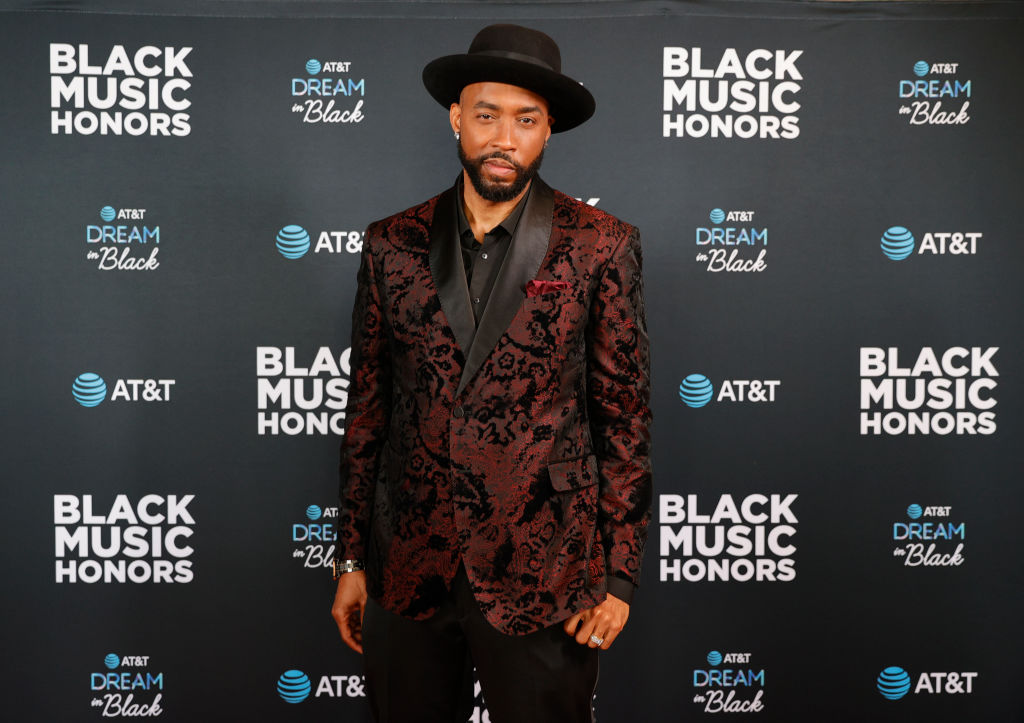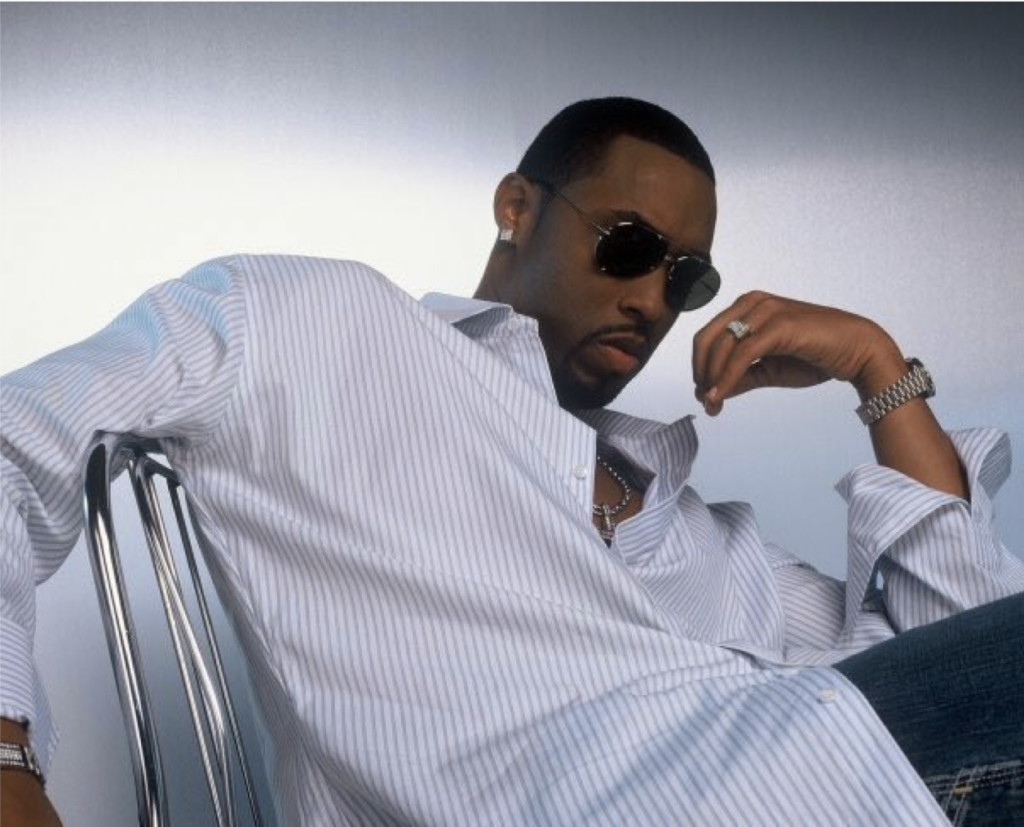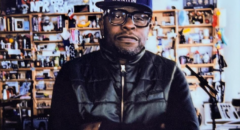
From creating megahits in the1990s and 2000s to becoming a megachurch pastor, hitmaker Montell Jordan has carved out a musical journey all his own. You may think you know how Montell Jordan does it, but you don’t. Want to know how he actually does it? Here's how the man who made "This Is How We Do It" a worldwide catchphrase was led from one life to another.
Jordan grew up in South Central, Los Angeles, in a notorious Crip gang-overrun neighborhood. Although both the Crips and Bloods ran rampant there, especially in the 80s and 90s, Jordan stayed away from the gangs. He recalls, "I was more fearful of my dad than I was the Crips and Bloods," he says. “ If we even thought about gang banging or being around that, he would take us out first.”
https://youtu.be/0hiUuL5uTKc?si=2P9cxugYTc4uxY6W
Instead, Jordan frequented the local church, where he played the piano. Moreover, pretty much his whole family served at the church in some capacity, meaning that going to church was a tradition he was brought up in. Being the church pianist with service six days out of the week, Jordan got his start with music. But if you heard Montell Jordan’s records during his rise to fame in the 90s and early 2000s, you wouldn’t guess that he spent much time in a church. His music portrayed partying, women and drinking. In an interview with The Revolution TV, the former R&B singer details his transformations:
"I grew up in the church. I lived in the church. I played in the church. Then when I got to college, and I got a chance to see the world and the lure of the world," admits Jordan. "What I realized was for me at the time, what I was doing for the church was a gift from God. And because it was a gift from God and a gift to God, there was no financial attachment to what I did in the church. I was a musician in my church from the time I was 9 up until I was 21. At 21, I was playing for my church several days out of the week, all the time on Sunday. I think I was getting $100 dollars a week or something like that. I would do that, but then I would go to a nightclub and sing a Luther Vandross song. People would come up and lay $300 dollars at my feet. That was the beginning of ‘This is what I’m doing for the Lord, and I’m still struggling, paying for college.' I can go to a nightclub and sing for ten minutes, and I can pay for rent. That’s what led me to Russell Simmons."

While becoming an R&B sensation, Jordan lived a double life. Few people know that Montell Jordan was married to his manager. The reason that the information wasn’t public knowledge because his record label suggested he would be more marketable as a single man. So when the question of whether he was in a relationship or not, Jordan responded by saying he was married to his music - an answer that he ended up regretting. “If I professed with my mouth ‘I am married to my music,’ that makes my wife my mistress. I am now putting myself and my marriage in a detrimental position because I am claiming that the woman in my life is my music and therefore, I have now taken the music and placed it above the order that God ordained things to be.”
 Jordan, now 55 years old, recalls that in the beginning of his career, he had a conversation with God. “God, if you let me do the music, I don’t care if I’m performing for 70,000 or 7. I’ll always give my best performance.” He was literally performing in front of 70,000 in places like the Georgia Dome. But nobody is on top forever. There are always newer artists that enter the business and take another person’s place. Gradually, ticket sales began to dwindle. “I can remember, I was performing at a venue that held 2000 people. Literally, six people showed up. And all the while I was performing, I was saying ‘Ah God. I know I said it, but you’re really going to hold me to the 70,000 or 7. You’re really going to hold me to that.”
Jordan, now 55 years old, recalls that in the beginning of his career, he had a conversation with God. “God, if you let me do the music, I don’t care if I’m performing for 70,000 or 7. I’ll always give my best performance.” He was literally performing in front of 70,000 in places like the Georgia Dome. But nobody is on top forever. There are always newer artists that enter the business and take another person’s place. Gradually, ticket sales began to dwindle. “I can remember, I was performing at a venue that held 2000 people. Literally, six people showed up. And all the while I was performing, I was saying ‘Ah God. I know I said it, but you’re really going to hold me to the 70,000 or 7. You’re really going to hold me to that.”

While this was happening, though, Jordan’s spirits weren’t crushed. He and his wife were involved in a “great” church: Victory World Church in Atlanta. During a religious fast in July 2010, God told Jordan that he would be leaving the music business. “I did not want to hear that. I wanted to hear, 'I‘m gonna let you do another album', or 'this time it’s gonna’ work'. All the different things I wanted to hear; I did not hear any of those things,” Jordan said.
On his last days of being an R&B artist, Jordan would perform in clubs that held a couple hundred people and later he would sign autographs. The church would ask him to come in on Sundays to lead worship. Paradoxically from his fans at the clubs, “There would be 1500 people in there with their hands raised, worshipping God…They’re not seeing me. They’re seeing God.” This led to a profound thought: “How is it that I’m an R&B singer out in the club and this church would open the door for me to come and love on me to sing for God’s glory. And I didn’t really understand that. I mean...
...they saw I was serving. They saw my heart. They saw our marriage. But they also saw what I was doing in the world and still embraced me and loved on me and kept on feeding me Word."
To deal with the dilemma of whether or not he should quit what has made him rich and dig deeper into his faith, Jordan talked to God. He knew he couldn’t do both. He told God that He had to help him become who God wanted him to become. Importantly, he also told God that God would have to eliminate a way for him to continue his old life. So when the church let Jordan know that if he put his past behind him, they would embrace him taking his worship to the next level the choice was obvious.

Reminiscing about the day he accepted his new position in the church, a smiling Jordan revealed, “January 1st, I woke up, and I think I felt more free than I ever have my entire life. I felt like I had functioned as two people, and when I woke up I was one man. I was just husband, father, and lover of God."
Currently, Montell Jordan is the Leap Worship Pastor according to Victory's website. If you see footage of Montell Jordan preaching, he isn’t dressed like many pastors - in a suit or religious clothes of various sorts. He said that the reason is, “If I’m ministering to somebody that’s from that R&B world like me, I can’t come into church suit and tie’d up and ‘Look at Montell, now.' You’re not going to see me do that…I’m still going to keep my blessed experience that God gave me but use it for his glory…”








